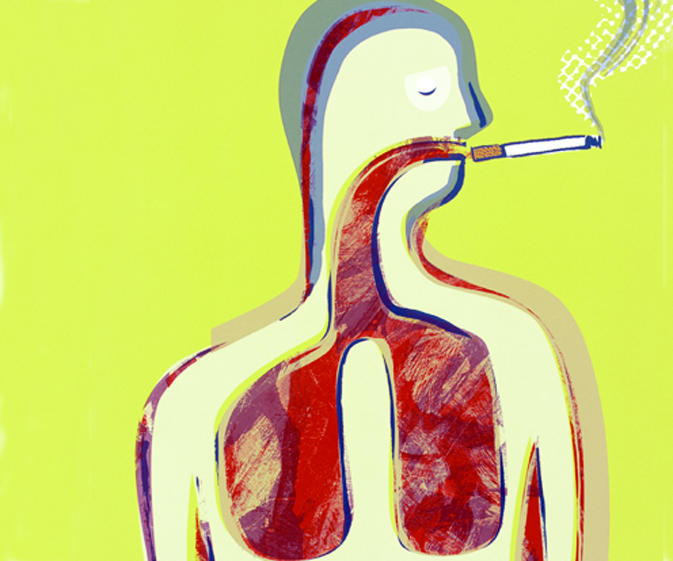Editor—The research article by Chapple et al highlights problems for lung cancer patients and their experiences of stigma and shame bring to mind two allied factors.1
Figure 1.

Credit: PAUL BROWN/SPL
Health promotion strategies have increased with our identification of chronic conditions as the major health threat. The role of industrial development in exacerbating chronic health issues was implicated, and initially health promotion advocates contextualised illness with environmental, psychological and socioeconomic factors.2 Unfortunately the “determinants of health” model was often viewed as damaging to economic interests and a more “watered down” individual version was preferred.3
However, many people (especially those in lower socioeconomic groups) have fewer experiences of personal agency and greater difficulty changing unhealthy behaviours.4 Thus individualised health promotion strategies have worked more effectively for people in higher socioeconomic groups.3 The individualised model of health promotion has created a society that internalises the connection between choice, behaviour and health but reacts by “blaming the victim.” This phenomenon is ubiquitous in social and psychological literature including attitudes to illness.5 Consequently patients experience further isolation, creating depression or anxiety, which affects quality of life and possibly increased morbidity.
Support groups have been found to be valuable to increase quality of life and experiences of patient agency. In this study participants who attended support groups discussed their feelings of shame but were more aware of the partial culpability of tobacco companies in product promotion. This “resistance” to the stigmatisation might also be seen as a resistance to the individualisation of their illness.
Competing interests: None declared.
References
- 1.Chapple A, Ziebland S, McPherson A. Stigma, shame, and blame experienced by patients with lung cancer: qualitative study. BMJ 2004;328: 1470. (19 June.) [DOI] [PMC free article] [PubMed] [Google Scholar]
- 2.Mustard JF, Frank J. The determinants of health. Toronto: Canadian Institute for Advanced Research, 1991.
- 3.Townson M. Health and wealth: how social and economic factors affect our well-being. Toronto: Canadian Centre for Policy Alternatives, 1999.
- 4.Coughlan R. Agency communication and embodiment. Using qualitative research to explore healthcare relationships. Psychol Health 2004 (in review).
- 5.Bittman B, DeFail A. Reprogramming pain: transforming pain and suffering into health and success. Meadville, PA: Touchstar, 1999.


